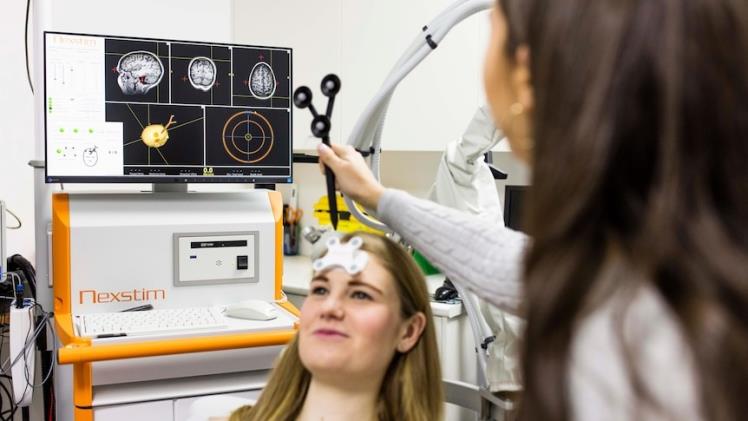Introduction
Obsessive-Compulsive Disorder (OCD) affects millions of people worldwide, causing distressing obsessions and compulsions that can significantly impact daily life. While traditional treatments such as medication and therapy can be effective for many individuals with OCD, some may continue to struggle with symptoms despite receiving standard care.
In such cases, participating in OCD clinical trials can offer a glimmer of hope, providing access to cutting-edge treatments, support, and resources that may not be available through conventional methods.
In this article, we’ll explore the ways in which participating in OCD clinical trials can offer valuable help and support for individuals struggling with OCD, offering hope for a brighter future.
Understanding OCD Clinical Trials
OCD clinical trials are research studies designed to evaluate the safety and effectiveness of new treatments, interventions, or therapies for Obsessive-Compulsive Disorder.
These trials are conducted by researchers, clinicians, and pharmaceutical companies with the goal of advancing our understanding of OCD and developing innovative treatment options for individuals affected by the disorder.
Clinical trials may involve testing new medications, therapeutic approaches, or devices aimed at alleviating OCD symptoms and improving quality of life for participants.
Access to Cutting-Edge Treatments
One of the primary benefits of participating in OCD clinical trials is access to cutting-edge treatments that may not be available through standard care. These treatments may include novel medications, experimental therapies, or innovative approaches to managing OCD symptoms.
By participating in OCD clinical trials near me, individuals have the opportunity to receive early access to promising treatments that have the potential to improve their symptoms and quality of life.
- Support and Monitoring: Participating in an OCD clinical trial also provides participants with access to support and monitoring throughout the treatment process. Research staff and study coordinators closely monitor participants’ progress, conduct regular assessments, and provide support and guidance as needed. This level of support can be invaluable for individuals struggling with OCD, offering reassurance, encouragement, and resources to help them navigate their treatment journey.
- Contribution to Scientific Knowledge: In addition to receiving help and support for their own OCD symptoms, participants in clinical trials also have the opportunity to contribute to scientific knowledge and research advancements in the field of OCD. By volunteering to participate in research studies, individuals with OCD play a vital role in advancing our understanding of the disorder and developing more effective treatments for future generations. Their participation helps researchers identify new treatment targets, refine existing therapies, and improve outcomes for individuals living with OCD.
- Access to Resources and Information: Participating in an OCD clinical trial often provides individuals with access to a wealth of resources and information related to the disorder. Research institutions, advocacy groups, and mental health organizations may offer educational materials, support services, and resources specifically tailored to individuals participating in clinical trials. These resources may include informational websites, helplines, support groups, and peer support networks where participants can connect with others who share similar experiences and challenges.
- Empowerment and Hope: Participating in an OCD clinical trial can be an empowering experience for individuals struggling with the disorder, offering hope for a brighter future. By taking an active role in their own treatment and contributing to research efforts, participants regain a sense of agency and control over their OCD symptoms. This sense of empowerment can be transformative, instilling hope and optimism for recovery and improvement in their quality of life.
Ethical Considerations and Patient Safety
Before enrolling participants in OCD clinical trials, researchers must adhere to strict ethical guidelines to ensure patient safety and well-being. Ethical considerations include obtaining informed consent from participants, protecting their privacy and confidentiality, and minimizing potential risks associated with the trial. Additionally, researchers must conduct thorough risk assessments and provide participants with detailed information about the potential benefits and risks of participating in the trial.
Throughout the trial process, participant safety is paramount, and researchers closely monitor for any adverse reactions or side effects. By prioritizing ethical considerations and patient safety, researchers uphold the highest standards of care and ensure that participants are treated with respect, dignity, and compassion.
The Future of OCD Treatment
As research in the field of OCD continues to advance, the future of treatment holds promise for individuals affected by the disorder. Clinical trials play a crucial role in driving innovation and developing new therapies that have the potential to revolutionize OCD treatment. From novel medications and therapeutic approaches to cutting-edge technologies and interventions, the landscape of OCD treatment is evolving rapidly.
By participating in clinical trials, individuals with OCD not only gain access to the latest treatment options but also contribute to shaping the future of OCD care. As researchers continue to explore new avenues for treatment and intervention, the outlook for individuals living with OCD is increasingly hopeful, with the potential for improved outcomes and enhanced quality of life on the horizon.
Conclusion
OCD clinical trials offer a beacon of hope for individuals struggling with Obsessive-Compulsive Disorder, providing access to cutting-edge treatments, support, and resources that may not be available through conventional methods. By participating in clinical trials, individuals with OCD have the opportunity to receive early access to promising treatments, contribute to scientific knowledge, and connect with a community of support.
Through their participation, they not only receive help and support for their own symptoms but also play a vital role in advancing research efforts and improving outcomes for future generations. Finding hope through participation in OCD clinical trials is not just about seeking relief from symptoms—it’s about embracing the possibility of a brighter future and reclaiming control over one’s mental health journey.






